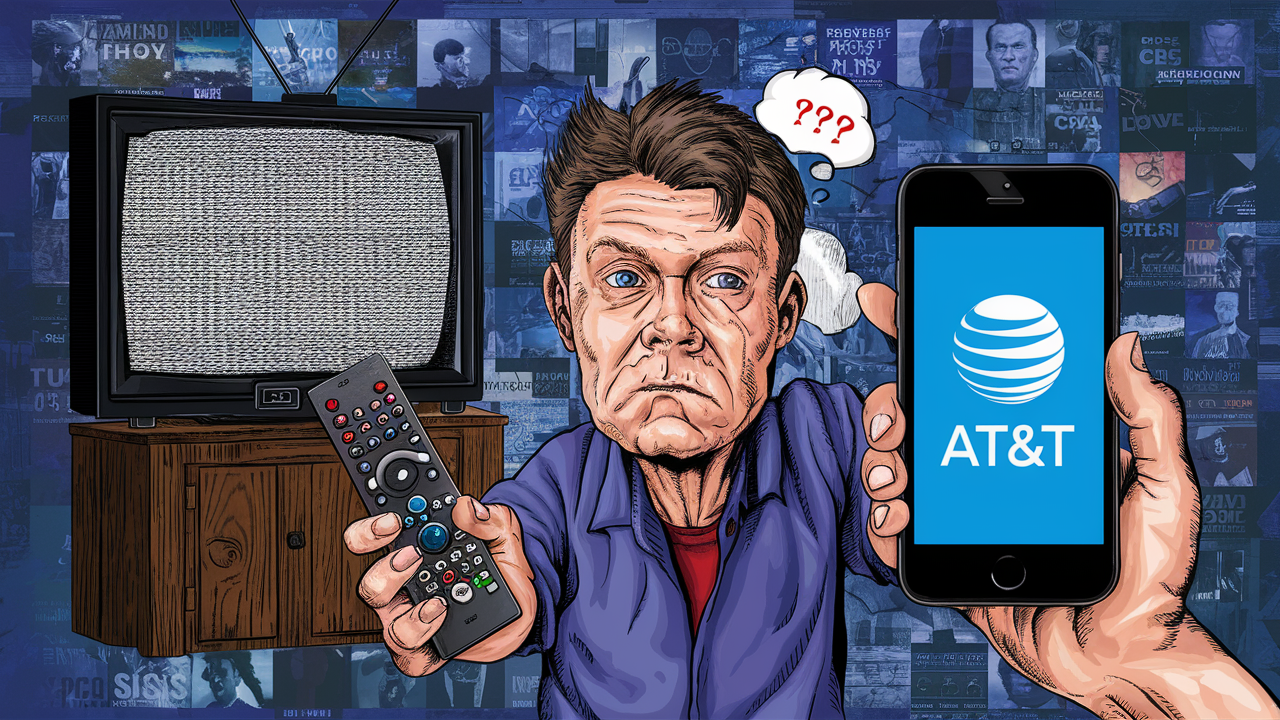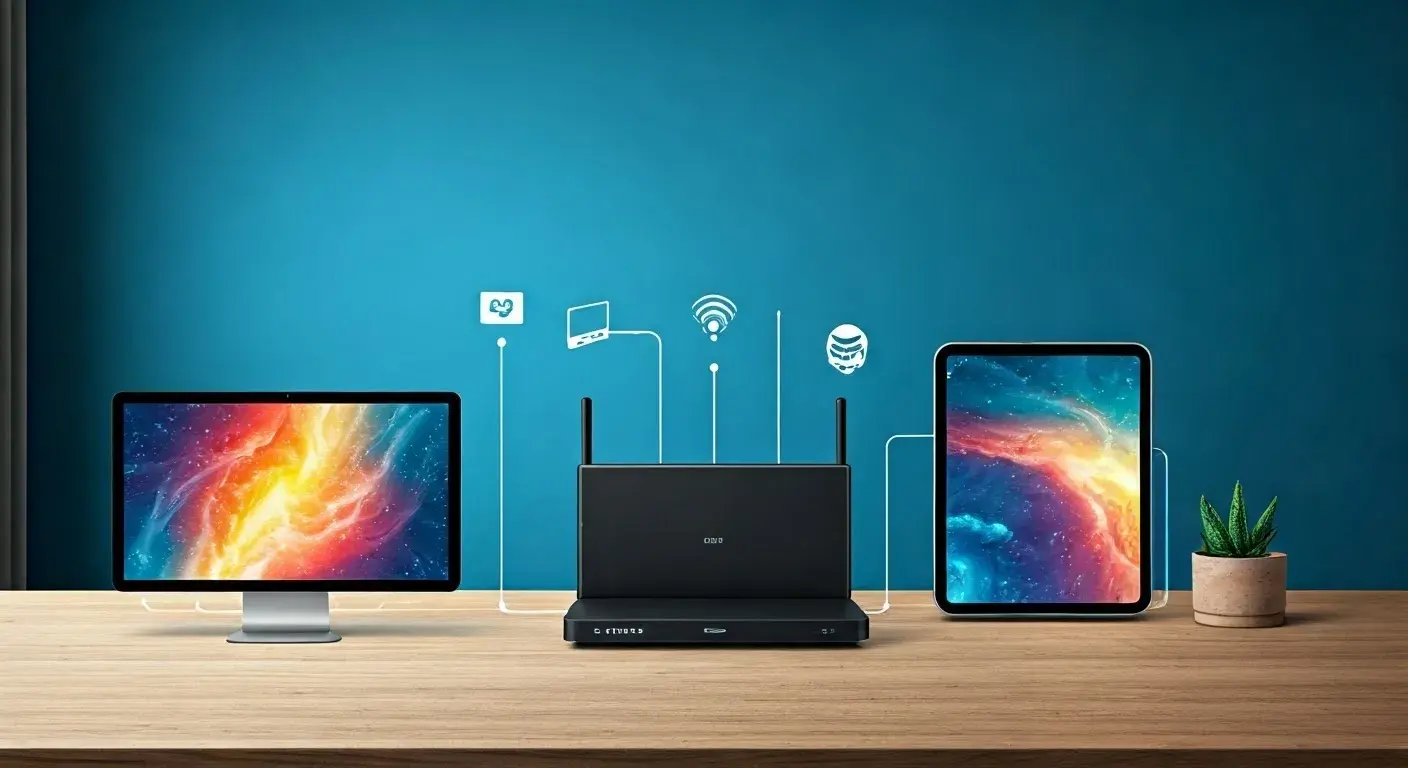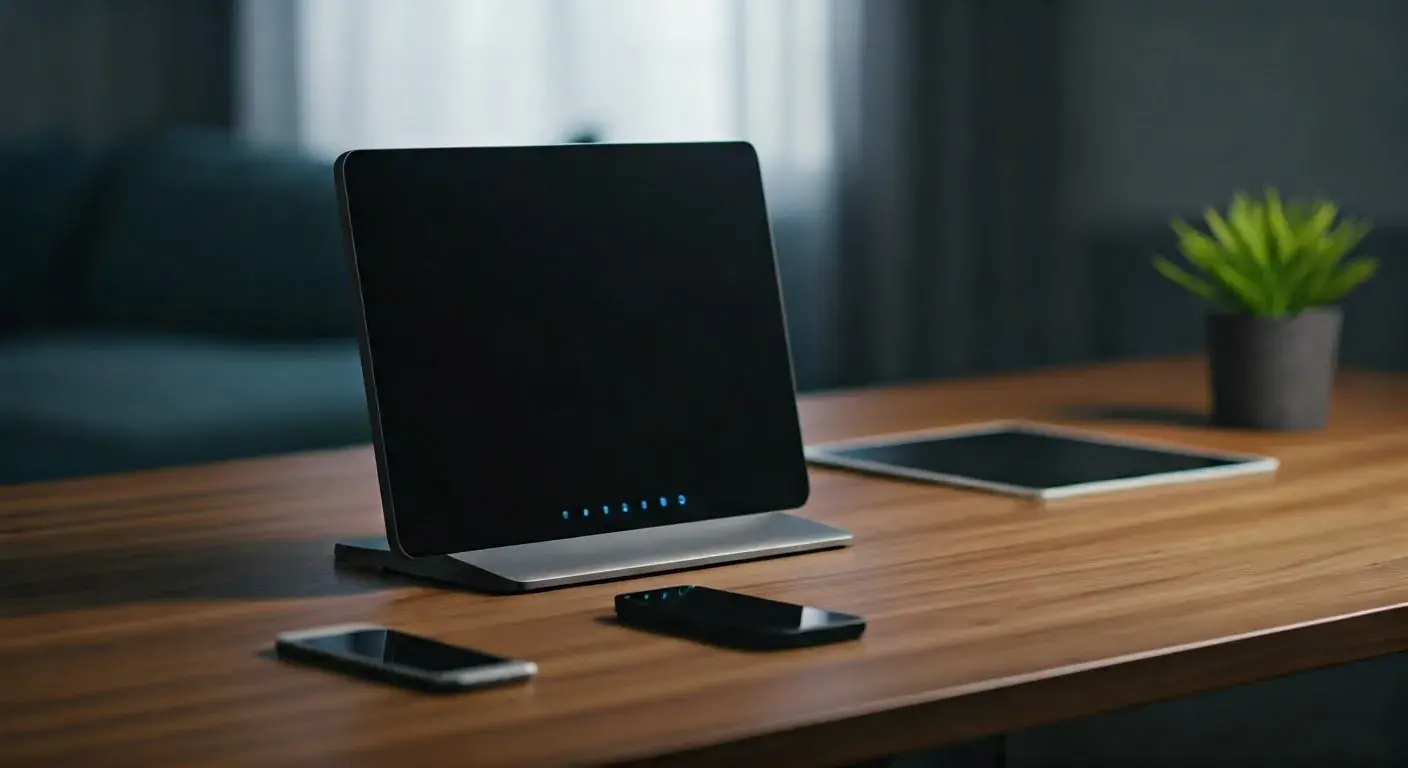Why isn't CBS on AT&T?

CBS is currently unavailable on AT&T TV and DirecTV Stream due to an ongoing carriage dispute between Paramount Global (CBS's parent company) and AT&T. These disputes typically revolve around retransmission fees, programming costs, and contract terms, leading to temporary blackouts for subscribers. As of 2025, negotiations are ongoing, and viewers may need to explore alternative viewing options.
Understanding the CBS and AT&T Stalemate
In the dynamic landscape of modern media consumption, the absence of a major broadcast network like CBS from a prominent service provider like AT&T (encompassing services such as AT&T TV, now rebranded as DIRECTV STREAM, and previously U-verse) is a recurring and often frustrating issue for viewers. As of early 2025, a significant number of AT&T subscribers find themselves unable to access CBS programming, leading to widespread questions about the reasons behind this blackout. This situation is not unique to AT&T and CBS; similar disputes between content providers and distributors are a common occurrence in the television industry, reflecting the complex financial and contractual negotiations that underpin the delivery of live television. The core of the problem lies in the intricate web of retransmission consent fees, programming rights, and the ever-increasing costs associated with delivering popular content. For AT&T, a telecommunications giant with a vast subscriber base, maintaining a comprehensive channel lineup is crucial for customer retention. Conversely, for Paramount Global, the parent company of CBS, securing fair compensation for its broadcast signals and valuable content is paramount to its financial health and ability to invest in future programming. This article delves into the intricacies of why CBS is not currently available on AT&T's platforms, exploring the underlying causes, the perspectives of both companies, the impact on consumers, and potential solutions in the evolving media ecosystem of 2025.
The Anatomy of a Carriage Dispute
Carriage disputes, the root cause of CBS's absence on AT&T, are essentially disagreements over the terms under which a content provider allows a distributor to carry its channels. These disputes can be broken down into several key components:
Retransmission Fees: The Financial Core
At the heart of most carriage disputes are retransmission fees. Broadcasters like CBS have the right to negotiate with pay-TV providers (cable, satellite, and virtual MVPDs like DIRECTV STREAM) for the right to carry their local over-the-air signal. While local network affiliates are often required to offer their signals for free over the air, they can charge distributors for the right to retransmit that signal to their subscribers. These fees are a significant revenue stream for broadcasters, particularly for major networks with popular programming and local news. In 2025, these fees have become increasingly substantial, reflecting the perceived value of live sports, major network shows, and local news to subscriber packages. AT&T, as a major distributor, faces immense pressure to manage these costs, as they directly impact the price of its service to consumers. When negotiations stall, the most potent leverage a broadcaster has is the threat of pulling its signal, which is precisely what happens during a blackout.
Programming Rights and Bundling
Beyond just the local CBS signal, Paramount Global also owns and operates various cable channels (e.g., Showtime, Paramount Network, MTV, Comedy Central, Nickelodeon) that are often bundled together. Distributors like AT&T negotiate for the rights to carry these channels as part of larger programming packages. Disputes can arise over the cost of these bundled channels, the specific channels included, or demands for carriage of new or underperforming networks. Paramount Global might insist on a certain bundle price or inclusion of specific channels that AT&T finds financially unviable or undesirable for its customer base in 2025. The negotiation for broadcast rights often becomes intertwined with the negotiation for cable channel rights, creating a more complex bargaining scenario.
Contract Expiration and Negotiation Tactics
Carriage agreements are not perpetual; they have expiration dates. As these dates approach, both parties engage in negotiations for a new contract. This period is often fraught with tension. Distributors may try to leverage changing consumer viewing habits (e.g., cord-cutting, streaming) to argue for lower fees. Content providers, on the other hand, may point to the continued popularity of their networks and the necessity of their content for a comprehensive package. Negotiations can be lengthy, and it's not uncommon for parties to allow contracts to expire temporarily to apply pressure. This tactic, while effective in negotiation, is what ultimately leads to the removal of channels from a provider's lineup, causing disruption for viewers.
Market Power and Leverage
The negotiation power of each party plays a significant role. A large broadcaster like Paramount Global, with flagship networks like CBS, holds considerable leverage due to the demand for its content, especially live sports like NFL football and popular primetime shows. Similarly, a large distributor like AT&T has leverage due to its vast subscriber base, which represents significant revenue for the content provider. When these power dynamics are perceived to be out of balance, or when one party feels the other is not negotiating in good faith, disputes can escalate. In 2025, the increasing fragmentation of the media market and the rise of direct-to-consumer streaming services add another layer of complexity to these power calculations.
Why CBS is Crucial for Viewers in 2025
The continued importance of CBS, despite the rise of streaming, cannot be overstated, especially in the context of live television viewing in 2025. For many households, CBS remains a primary source for a variety of content that is difficult to replicate through other means:
Live Sports Dominance
CBS is a powerhouse for live sports broadcasting. This includes a significant portion of the NFL (AFC games), NCAA Men's Basketball Tournament (March Madness), SEC college football, and the Masters Tournament. For sports fans, access to these events is non-negotiable. The inability to watch a critical NFL game or the NCAA championship on their primary TV provider is a major point of frustration and a primary driver for switching providers or seeking alternative viewing methods. The 2025 NFL season, in particular, is a massive draw for CBS.
Primetime Entertainment and News
CBS boasts a strong lineup of popular primetime dramas, comedies, and reality shows, such as "NCIS," "Young Sheldon," and "Survivor." These shows consistently rank among the most-watched programs on television, attracting millions of viewers weekly. Furthermore, "60 Minutes" remains a cornerstone of investigative journalism, and the CBS Evening News provides a vital source of national news for many. The local CBS affiliate also provides essential local news, weather, and community programming, which is often irreplaceable for viewers in their specific geographic area.
Local Affiliates and Community Connection
For many, the local CBS affiliate is more than just a conduit for national programming. It's a vital source of local news, traffic updates, weather forecasts, and community events. These local stations often have deep roots in their communities and are trusted sources of information. Losing access to these local broadcasts can feel like a significant disconnection from their immediate surroundings, particularly during severe weather events or local emergencies.
Accessibility and Simplicity
While streaming services offer a vast library of content, live broadcast television, particularly through a service like AT&T, offers a familiar and often simpler viewing experience for many, especially older demographics. The ability to flip through channels and catch up on live events or scheduled programming without needing multiple apps or logins is a significant convenience factor that many subscribers still value in 2025. The lack of CBS disrupts this established viewing habit.
AT&T's Perspective and Business Model
AT&T, as a massive telecommunications and media conglomerate (though it has divested some media assets, its pay-TV services remain significant), operates under a complex business model where managing content costs is a critical challenge. The company's strategy for its DIRECTV STREAM service (formerly AT&T TV) and its legacy U-verse platform involves offering a wide array of channels at competitive price points to attract and retain subscribers in an increasingly competitive market.
Cost Management and Subscriber Value
The primary concern for AT&T in any carriage negotiation is the overall cost of programming. Retransmission fees and the cost of bundled cable networks represent a substantial portion of a pay-TV provider's operating expenses. In 2025, with subscriber numbers in traditional pay-TV services generally declining, AT&T is under immense pressure to ensure that the price customers pay reflects the value they receive. If AT&T believes that the fees demanded by Paramount Global for CBS and its other networks are excessive or unsustainable given the current market conditions and subscriber trends, they will push back. They must balance the desire to carry popular channels against the risk of driving subscribers away with higher monthly bills.
Competition and Market Dynamics
AT&T competes not only with other traditional pay-TV providers (cable and satellite) but also with a burgeoning ecosystem of streaming services, both live TV alternatives (like Hulu + Live TV, YouTube TV, Sling TV) and on-demand platforms (Netflix, Max, Disney+, etc.). To remain competitive, AT&T needs to offer a compelling package that can stand up to these alternatives. The absence of a major network like CBS can make its offerings less attractive compared to a competitor that still carries the channel. However, AT&T also recognizes that if it agrees to what it considers unreasonable terms, it sets a precedent that could lead to higher costs for other networks in the future, further impacting its competitive position.
Strategic Divestitures and Focus
In recent years, AT&T has undergone significant strategic shifts, including divesting WarnerMedia assets. This indicates a focus on its core telecommunications business and potentially a more selective approach to its media and entertainment ventures. While DIRECTV STREAM remains a significant part of its offering, the company may be less willing to absorb escalating content costs if they do not align with its long-term strategic goals and profitability targets for its pay-TV division. This strategic recalibration can influence their negotiation stance in carriage disputes.
Paramount Global's (CBS) Position
Paramount Global, the parent company of CBS, operates in a media landscape that is undergoing rapid transformation. While the company has a rich history and a portfolio of valuable assets, it faces challenges in adapting to the streaming era and maintaining profitability from its traditional broadcast and cable networks. Its stance in negotiations with distributors like AT&T is driven by several key objectives:
Maximizing Revenue from Existing Assets
For Paramount Global, retransmission fees and carriage fees for its cable networks are critical revenue streams. These fees help fund the production of high-quality content, invest in new technologies, and support its own streaming services like Paramount+. In 2025, as the advertising market for traditional television evolves and subscriber numbers for linear TV decline, these fees become even more important for maintaining financial stability. Paramount Global aims to ensure that the fees it receives are commensurate with the viewership and cultural relevance of its programming, especially for flagship networks like CBS.
Leveraging Content for Streaming Growth
Paramount Global is heavily invested in its direct-to-consumer strategy, primarily through Paramount+. The company uses its popular content, including CBS shows, live sports, and movies from its library, to attract subscribers to Paramount+. In negotiations, Paramount Global might seek to leverage carriage agreements to drive viewers towards its streaming service, perhaps by demanding certain promotional inclusions or by strategically limiting the availability of certain content on linear TV if it's exclusive to its streaming platform. However, this can create a delicate balance, as alienating traditional pay-TV subscribers could reduce the overall audience reach for its content.
Protecting Brand Value and Viewer Engagement
CBS is one of America's most recognized and enduring television brands. Paramount Global has a vested interest in protecting that brand value and ensuring its content remains accessible to a broad audience. A prolonged blackout can damage the perception of both CBS and the distributor. However, the company also needs to demonstrate to its shareholders that it is extracting maximum value from its content rights. This can lead to a firm stance in negotiations, even if it means temporary disruptions.
The Role of Local Affiliates
It's important to remember that CBS is a network that relies on a vast system of independently owned and operated local affiliate stations. Paramount Global negotiates on behalf of these affiliates for retransmission consent. The specific demands and terms can sometimes be influenced by the needs and priorities of these local stations, adding another layer of complexity to the negotiations with national distributors like AT&T.
Impact on AT&T Subscribers
The absence of CBS on DIRECTV STREAM and other AT&T platforms has tangible consequences for its subscribers. These impacts range from minor inconveniences to significant disruptions in viewing habits and access to essential information.
Loss of Access to Popular Content
As detailed earlier, subscribers miss out on NFL games, popular primetime shows, and national news broadcasts. This can lead to frustration, particularly during major sporting events or when a favorite series is airing its season finale. Many subscribers feel they are not getting the full value of the package they are paying for.
Inconvenience and Frustration
The need to find alternative ways to watch CBS – whether through over-the-air antennas, other streaming services, or by switching providers – creates significant inconvenience. This is especially true for those who are less tech-savvy or who rely on their AT&T service as their sole source of television entertainment. The constant back-and-forth between content providers and distributors, with subscribers caught in the middle, erodes customer loyalty.
Potential for Subscriber Churn
When a channel as popular as CBS is removed, it can be the tipping point for subscribers who are already considering cutting the cord or switching providers. AT&T risks losing customers to competitors who still offer CBS, especially if the dispute is prolonged. This can lead to a decline in subscriber numbers, which in turn impacts AT&T's revenue and market position.
Impact on Local Communities
For local news and community programming provided by the local CBS affiliate, the blackout means that a significant portion of the local audience is cut off from vital information. This can be particularly detrimental during emergencies or when important local events are being covered.
Alternative Ways to Watch CBS in 2025
While the current situation is frustrating for AT&T subscribers, there are several alternative methods to access CBS programming in 2025. These options offer flexibility and can help viewers stay connected to their favorite shows and live events.
Over-the-Air (OTA) Antenna
This is often the most straightforward and cost-effective solution for accessing local CBS programming. By purchasing a digital TV antenna, viewers can receive local broadcast channels, including CBS, in high definition for free. The range and quality of reception depend on the viewer's location and the strength of the local broadcast towers. This method bypasses the need for any subscription service for the local CBS channel.
Paramount+ Streaming Service
Paramount Global's own streaming service, Paramount+, offers a live stream of local CBS stations in most markets, along with on-demand access to current and past seasons of CBS shows, originals, and other Paramount Global content. This is a direct alternative for accessing CBS programming, including live sports like NFL games (subject to local blackouts on the stream itself if the game is being broadcast locally and the user is in that market). Paramount+ offers different subscription tiers, providing flexibility for consumers.
Other Live TV Streaming Services
Several competing live TV streaming services continue to carry CBS. These include:
- YouTube TV: Generally offers local CBS affiliates in most markets.
- Hulu + Live TV: Also typically includes local CBS channels.
- Sling TV: CBS is available on Sling TV's "Blue" package in select markets, often requiring additional regional sports add-ons for local content.
Subscribers experiencing the CBS blackout on AT&T may consider switching to one of these services if CBS is a priority. It's crucial to verify local channel availability for any streaming service before subscribing.
Individual Show Purchases or Streaming
For viewers primarily interested in specific CBS shows, purchasing episodes or seasons through digital storefronts like Amazon Prime Video, Apple TV, or Google Play is an option. Additionally, many popular CBS shows become available for streaming on Paramount+ or other platforms shortly after their initial broadcast, allowing viewers to catch up on demand.
Navigating the Future of Content Distribution
The ongoing carriage disputes between content providers and distributors like AT&T are symptomatic of a larger shift in how media is created, distributed, and consumed. The traditional model of bundled linear television is being challenged by the rise of streaming, direct-to-consumer services, and a la carte viewing options. In 2025, several trends are shaping the future:
The Streaming Wars Intensify
The competition among streaming services is fiercer than ever. Companies are investing heavily in original content and exclusive rights to attract and retain subscribers. This often means that valuable content, including live sports and popular network shows, becomes a key differentiator for both traditional pay-TV providers and streaming platforms.
Bundling vs. Unbundling
The traditional bundle of dozens or hundreds of channels is becoming less appealing to many consumers who only watch a handful of them. This has led to a push for unbundling, where consumers can pick and choose the specific channels or content they want. However, content providers often benefit from the broad reach and revenue generated by these bundles. This tension between bundling and unbundling will continue to drive negotiations and disputes.
The Role of Data and Personalization
In the digital age, data plays an increasingly crucial role. Distributors and content providers are using data analytics to understand viewer behavior, personalize content recommendations, and target advertising more effectively. This data can also inform negotiation strategies, as each party seeks to understand the true value of content to specific audience segments.
Consolidation and Strategic Alliances
The media industry continues to see consolidation, as companies merge or form strategic alliances to gain scale and competitive advantage. These shifts can alter the negotiating power between distributors and content creators, potentially leading to fewer but larger players in the market. The ongoing evolution of Paramount Global itself, with its various mergers and acquisitions over the years, is a testament to this trend.
The Future of Broadcast Television
While broadcast television faces challenges, it remains a vital platform for reaching a mass audience, particularly for live events. The future likely involves a hybrid model where broadcast networks continue to offer free over-the-air signals while also leveraging their content across multiple platforms, including their own streaming services and potentially through agreements with distributors that reflect the evolving value of their programming in the digital age.
Conclusion
The question of "Why isn't CBS on AT&T?" boils down to a complex and often contentious carriage dispute, a common occurrence in the television industry. As of 2025, the unavailability of CBS on DIRECTV STREAM and other AT&T platforms stems from a disagreement between Paramount Global (CBS's parent company) and AT&T over the financial terms of carrying the network and its associated cable channels. These negotiations typically revolve around retransmission fees, programming rights, and the overall value of content in a rapidly evolving media landscape. For AT&T, managing costs to maintain competitive pricing for its subscribers is paramount, while Paramount Global aims to secure fair compensation for its valuable programming, including live sports and popular primetime shows, to fund its operations and streaming ventures like Paramount+. The impact on AT&T subscribers is significant, leading to frustration and a loss of access to essential content. Viewers seeking to watch CBS can explore several alternatives, including over-the-air antennas, Paramount+, or competing live TV streaming services like YouTube TV and Hulu + Live TV. The ongoing disputes highlight the broader shifts in content distribution, with the industry navigating the complexities of streaming, bundling, and changing consumer habits. Ultimately, resolving these carriage disputes requires both parties to find a mutually agreeable financial and contractual framework that acknowledges the enduring appeal of broadcast content while adapting to the realities of the modern media market. Until a resolution is reached, AT&T subscribers will need to rely on these alternative viewing methods to stay connected to CBS.
Faq
1. Why did CBS disappear from my AT&T service?
CBS was removed due to a carriage dispute between AT&T and Paramount Global. Their contract expired, and they failed to agree on new terms for retransmission consent fees, leading to a blackout.
2. Is the CBS blackout on AT&T permanent?
No, it is almost certainly temporary. These disputes are a negotiating tactic and are resolved when a new contract is signed. However, they can last for several weeks.
3. Who owns CBS?
CBS is owned by Paramount Global (formerly ViacomCBS), a major mass media conglomerate.
4. Which AT&T services are affected by the CBS blackout?
The dispute typically affects all AT&T video services, including DirecTV, DirecTV Stream, and AT&T U-verse.
5. How can I watch CBS without AT&T?
You can use an over-the-air antenna for free, subscribe to Paramount+ for live local CBS and on-demand, or use a live TV streaming service like YouTube TV or Hulu + Live TV.
6. Will I get a credit on my bill for the missing channel?
AT&T sometimes offers small, automatic credits to affected customers during prolonged blackouts, but they are not guaranteed. You can contact customer service to ask.
7. Was there a past CBS and AT&T blackout?
Yes, the most significant one was in July 2019, which lasted for over a month and affected all AT&T TV services nationwide.
8. Why do cable and satellite companies fight with networks over fees?
It’s a fundamental business negotiation. Networks want to be paid more for their valuable content, while providers want to control costs to keep customer bills from rising too quickly, which accelerates cord-cutting.
9. Can I watch the NFL on CBS without AT&T?
Absolutely. You can watch with an HD antenna, through Paramount+, or on another live TV streaming service that carries your local CBS channel.
10. What should I do if CBS is not on my AT&T lineup?
First, check the official ATTV or DirecTV outage pages for confirmation. Then, explore alternatives like an antenna or a free trial of a streaming service like Paramount+ or YouTube TV to bridge the gap.





